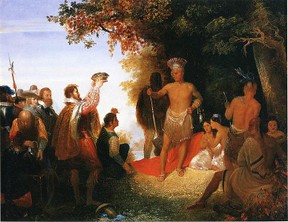 It wasn't all Columbus blundering his way around the Americas.
It wasn't all Columbus blundering his way around the Americas.
In fact, all around the world, people have historically decided that the first thing that they heard had to be the place-name. What else could those silly natives possibly be trying to say?
"Windgancon." The British scout duly recorded what he heard in response to his question about what this place was called.
It didn't seem to occur to him that, just as he couldn't understand Powhatan, the individuals grinning back at him weren't exactly fluent in English either.
Others heard it too. They couldn't decide on the precise phonetic spelling. Wingandacoa was one variation. Someone else, with slightly less imagination, thought he'd got 'Wingina' out of it.
Whatever the case was, it was soon dismissed. When Sir Walter Raleigh formed a colony there, he promptly renamed the whole area Virginia. It flattered Queen Elizabeth I, aka The Virgin Queen, back home.
Which must come as a huge relief to the US population of the state, as they would otherwise have been called, "What gay clothes you're wearing!" in Powhatan.


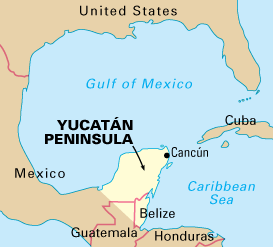 "I don't know what you're saying." The Maya man was utterly bewildered.
"I don't know what you're saying." The Maya man was utterly bewildered.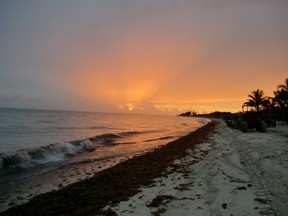 Across the I Don't Know What You're Saying Straits (more commonly known as the Yucatán Straits) is the country of Soil.
Across the I Don't Know What You're Saying Straits (more commonly known as the Yucatán Straits) is the country of Soil. It wasn't all Columbus blundering his way around the Americas.
It wasn't all Columbus blundering his way around the Americas.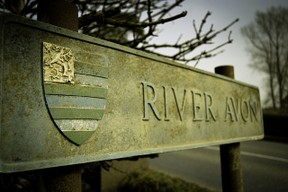 Just to prove that it's not only North and South America where it can all go wrong, let's zoom across the Atlantic Ocean to my own country.
Just to prove that it's not only North and South America where it can all go wrong, let's zoom across the Atlantic Ocean to my own country.






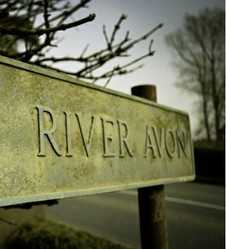

 St Tydecho's Churches in West Waleson 09/03/2014
St Tydecho's Churches in West Waleson 09/03/2014
 Goodies for an Outlander Premiere Partyon 03/06/2015
Goodies for an Outlander Premiere Partyon 03/06/2015
 Holocaust Memorial Day Interview with Rainer Höss, Grandson of Rudolf Architect of Auschwitzon 01/24/2015
Holocaust Memorial Day Interview with Rainer Höss, Grandson of Rudolf Architect of Auschwitzon 01/24/2015
 Romantic Valentine Gifts for an Outlander Fanon 01/16/2015
Romantic Valentine Gifts for an Outlander Fanon 01/16/2015

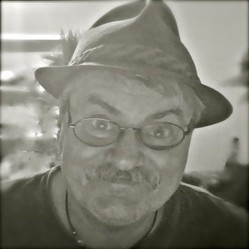

Comments
Yes! LOL What a fabulous name that would be to encounter.
You're making me wish that I was visiting Glastonbury Tor again. :)
Not a place name but a PC version of a name: Guy Chapman. More precisely rendered: Person Personperson.
And tor is definitely hill - at least in the west country. Look at the number of places with that suffix and the mere fact that the hills are called that on the moors. (cf Ten Tors Challenge).
I'm sorry, Lou, I don't know how I missed this! Pen is Welsh for 'head', as in 'headland'. You might have encountered it in Pendragon, or Head Dragon.
As for 'tor', that's a tricky one. It's usually called Old English, with a Latin etymology in 'turris'. But it's only ever found in British places where the Celts hung on for ages. It could well be something to do with the Welsh 'twrr', which means a heap or a pile, or else the Gaelic 'torr', which means lofty hill or mound.
Either way, Torpenhow definitely counts as a rather repetitive English placename!
There's another place in England who's name is supposed to translate to hill hill hill and that's Torpenhow where my husband's family (a few generations back) hail from. Tor from Old English, can't remember where Pen is from and How was from Danish.
As a genealogist, I'm forever staring at surnames looking for clues. You're right, there can be some hilarious ones going on there. You can only guess at what caused them to have a name like that back in the mists of time.
Our country is full of hills and valleys, and folk who moved from valley upwards to the hill and vice versa was called by the location they came from, so we can expand this to Valley (surname) from the Hill (village), or Hills from the Hill or Hill from the Valley and so on and on. And than enters their professions and house names, many times named after a relative from centuries ago or old owner's profession...
Many hours of fun, if you want to dig to the depths of the folklore:)
Cheers!
I love that. :D Are there anymore which are funny translations? They never cease to amuse me.
I've found another Breedon on the Hill here. It's in Leicestershire.
Yes, Canada does mean "Village" :) Most of the names of our cities and provinces are derived from the over 600 First Nations languages, although the majority of Inuit names are found further north in the Territories.
I certainly tittered somewhat, when I first heard that one!
This was really funny. Yucatan!